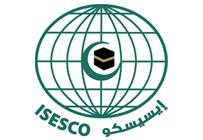ISESCO’s Appeal to Muslim World on International Literacy Day

The appeal explains that illiteracy, as an increasingly rampant phenomenon in the Muslim countries, is not only a dangereous social scourge but also a serious obstacle to development, which greatly undermines society’s capacity to prosper, build a strong economy and achieve the Millennium Development Goals.
ISESCO pointed out that illiteracy rates in the Muslim world range between 40% among males and 65% among females, with rural areas lagging behind urban settings with a gap of more 10%, though a small number of Member States have been able to erradicate illiteracy or reduce its rates dramatically. But the overall situation in the Member States has not changed enough in spite of the efforts of governments and civil society, ISESCO noted.
In the same vein, ISESCO stressed the need to develop policies to address the challenge of literacy, deemed among the toughest ones in the Muslim world. To this end, the Oganization underlined the necessity of building Member States’ national capacity to overcome the worsening scourge of illitracy and allow millions of illiteracy-trapped citizens to contribute fully to their communities’ development.
ISESCO’s appeal says that illitracy is not only a smirch on the Muslim Ummah’s name, but an issue as pressing as to be given due attention as a component of national security by the highest government levels. A society with half the population staggering in illiteracy will never throw off the shackels of poverty, ignorance and vulnerability, nor can it maintain its gains, stand up for its rights and preserve its sovereignty, the appeal argues.
ISESCO said that a more concerted effort in the framework of litercay-focused joint Islamic action would provide ample opportunites to overcome the problems associated with illiteracy, and reiterated its commitment to continuing its efforts to strengthen Member States’ capacity in this regard through more efficient, cost-effective national policies.
The appeal points out that ISESCO has devoted annual awards to encourage further literacy-oriented action by NGOs in the Member States, and regulalry publishes studies on literacy and holds training courses and workshops for the benefit of literacy programmes leadership, male and female.
By the same token, the Organization urged the Muslim world to pay greater attention to literacy, expand the scope of action in this connection, using all means available, and develop national policies in this vital area to achieve the desired development.
Source: isesco.org



